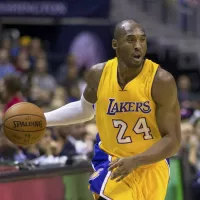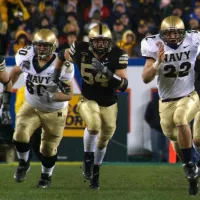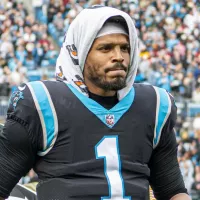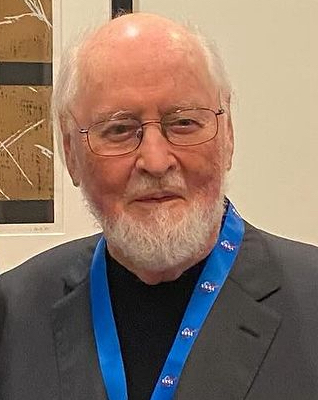John Williams is a highly acclaimed American composer and conductor, renowned for his iconic film scores spanning seven decades. His distinctive style combines romantic, impressionistic, and atonal elements with intricate orchestration. He is particularly celebrated for his collaborations with George Lucas and Steven Spielberg, resulting in some of cinema's most recognizable music. Williams's remarkable achievements are reflected in his numerous awards, including 26 Grammys, 5 Oscars, and multiple BAFTA, Emmy, and Golden Globe Awards. With 54 Academy Award nominations, he holds the distinction of being the second-most nominated individual in Oscar history, and the oldest nominee overall.
1969: The Reivers score
In 1969, John Williams scored Mark Rydell's The Reivers.
1972: Pete 'n' Tillie and The Cowboys scores
In 1972, John Williams scored Martin Ritt's Pete 'n' Tillie and Mark Rydell's The Cowboys.
1974: The Towering Inferno Score
In 1974, John Williams scored John Guillermin's The Towering Inferno.
1974: Conrack Score
In 1974, John Williams scored Martin Ritt's Conrack.
1976: Family Plot Score
In 1976, John Williams scored Alfred Hitchcock's final film, Family Plot.
1977: Star Wars Score
In 1977, John Williams scored George Lucas's Star Wars, creating a grand symphonic score influenced by classical composers and Golden Age Hollywood composers, which became highly successful and earned him his second Academy Award. The Star Wars theme is among the most widely recognized in film history.
1978: The Fury Score
In 1978, John Williams scored Brian de Palma's The Fury, receiving high praise for the apt and delicately varied score.
1979: Dracula Score
In 1979, John Williams scored John Badham's Dracula.
1981: Heartbeeps Score
In 1981, John Williams scored Allan Arkush's Heartbeeps.
1982: Monsignor and Yes, Giorgio
In 1982, John Williams scored Frank Perry's Monsignor and contributed the Oscar and Golden Globe nominated song "If We Were in Love" to Franklin J. Schaffner's Yes, Giorgio.
1984: The River Score
In 1984, John Williams scored Mark Rydell's The River.
1985: The Color Purple
In 1985, John Williams did not score The Color Purple. This was mentioned as the first Steven Spielberg film since this year that was not scored by Williams, due to him being replaced for Bridge of Spies in 2015.
1985: The Mission Music Package for NBC
In 1985, NBC commissioned John Williams to compose a television news music package called "The Mission", parts of which are still used by NBC today.
1986: SpaceCamp Score
In 1986, John Williams scored Harry Winer's SpaceCamp.
1987: The Witches of Eastwick Score
In 1987, John Williams scored George Miller's The Witches of Eastwick.
1988: The Accidental Tourist Score
In 1988, John Williams developed the themes in his Oscar-nominated score for Lawrence Kasdan's The Accidental Tourist using orchestration and synthesizers.
1989: Born on the Fourth of July Score
In 1989, John Williams scored Oliver Stone's Born on the Fourth of July.
1990: Stanley & Iris, Home Alone, Presumed Innocent scores
In 1990, John Williams scored Martin Ritt's Stanley & Iris, Chris Columbus' Home Alone, and Alan J. Pakula's Presumed Innocent.
1992: Home Alone 2 and Far and Away Scores
In 1992, John Williams scored Home Alone 2 and Ron Howard's Far and Away.
1995: Nixon and Sabrina Scores
In 1995, John Williams scored Oliver Stone's Nixon and Sydney Pollack's Sabrina.
1996: Sleepers Score
In 1996, John Williams scored Barry Levinson's Sleepers.
September 26, 1997: The Peacemaker release
On September 26, 1997, the DreamWorks Pictures film studio's opening logo, with music composed by John Williams, debuted in DreamWorks Pictures' first release, The Peacemaker.
1997: Rosewood and Seven Years in Tibet Scores
In 1997, John Williams scored John Singleton's Rosewood and Jean-Jacques Annaud's Seven Years in Tibet.
1998: Stepmom Score
In 1998, John Williams scored Chris Columbus' Stepmom.
1999: Angela's Ashes Score
In 1999, John Williams scored Alan Parker's Angela's Ashes.
2000: The Patriot Score
In 2000, John Williams scored Roland Emmerich's The Patriot.
2001: Scored A.I. Artificial Intelligence
In 2001, John Williams scored Steven Spielberg's A.I. Artificial Intelligence, which was based on an unfinished project by Stanley Kubrick. The score was described as restrained and modernist, including a quotation of Richard Strauss' Der Rosenkavalier at Kubrick's request.
2001: Harry Potter and the Sorcerer's Stone score
In 2001, John Williams scored the first Harry Potter film, Harry Potter and the Sorcerer's Stone directed by Chris Columbus.
2002: Catch Me If You Can Score
In 2002, John Williams composed the jazz-inspired score for Steven Spielberg's Catch Me If You Can, alluding to works by Henry Mancini.
2002: Attack of the Clones Score
In 2002, John Williams composed the score for Attack of the Clones, including "Across the Stars", a love theme for Padmé Amidala and Anakin Skywalker.
2002: Harry Potter and the Chamber of Secrets score
In 2002, John Williams scored the second Harry Potter film, Harry Potter and the Chamber of Secrets directed by Chris Columbus.
2004: The Terminal Score
In 2004, John Williams wrote a national anthem for the fictional nation of Krakozhia for the film The Terminal.
2005: War of the Worlds and Munich Scores
In 2005, John Williams composed the score for Steven Spielberg's War of the Worlds, drawing inspiration from classic monster movie scores, and also scored Spielberg's epic historical drama film, Munich.
2005: Revenge of the Sith Score
In 2005, John Williams created the score for Revenge of the Sith, combining themes from previous Star Wars films and introducing new themes like "Battle of the Heroes".
2005: Memoirs of a Geisha Score
In 2005, John Williams scored Rob Marshall's Memoirs of a Geisha.
2005: Collaboration since 2005
In 2005, before scoring The Book Thief in 2013, John Williams' last collaboration with a director other than Spielberg was Memoirs of a Geisha.
2006: Superman Returns
In 2006, the heroic and romantic themes from John Williams' 1978 score for Superman appeared in Superman Returns.
2011: Scores for The Adventures of Tintin and War Horse
In 2011, after a three-year hiatus, John Williams composed the scores for Steven Spielberg's The Adventures of Tintin, his first animated film score employing various styles, and War Horse, earning him two Academy Award nominations. He also won an Annie Award for his score for Tintin.
2012: Lincoln Score
In 2012, John Williams scored Steven Spielberg's Lincoln, receiving his 48th Academy Award nomination.
2013: The Book Thief Score
In 2013, John Williams scored The Book Thief, his first collaboration with a director other than Spielberg since 2005, earning him several award nominations and a Grammy Award.
2013: Expressed Interest in Star Wars Sequel Trilogy
In early 2013, John Williams expressed his interest in working on the Star Wars sequel trilogy, anticipating new movies in 2015 and 2016.
March 2015: Replaced on Bridge of Spies
In March 2015, Thomas Newman replaced John Williams as the composer for Spielberg's Bridge of Spies due to a minor health issue affecting Williams' schedule. This marked the first Spielberg film since The Color Purple in 1985 not scored by Williams.
2016: Star Wars project
In 2016, John Williams was anticipated to make new Star Wars movies, as expressed in 2013. He ultimately worked on The Last Jedi.
2017: The BFG and The Post Scores
In 2017, John Williams composed the scores for Steven Spielberg's fantasy film The BFG and his drama film The Post.
2017: Dear Basketball Score
In 2017, John Williams scored the animated short film Dear Basketball, directed by Glen Keane and based on a poem by Kobe Bryant.
July 2018: Galaxy's Edge Theme
In July 2018, John Williams composed the main musical theme for the Star Wars: Galaxy's Edge attraction at Disneyland and Disney's Hollywood Studios theme parks.
2018: Solo: A Star Wars Story contribution
In 2018, John Williams contributed "The Adventures of Han" and several additional demos for Solo: A Star Wars Story, while John Powell wrote the film's original score and adapted Williams' music.
2019: Music Consultant for West Side Story
In 2019, John Williams served as a music consultant for Steven Spielberg's West Side Story, which was released in 2021.
2020: Grammy Award and Oscar Nomination
In 2020, John Williams won the Grammy Award for "Best Instrumental Composition" for Star Wars: Galaxy's Edge Symphonic Suite and received his 52nd Oscar nomination for "Best Original Score" at the 92nd Academy Awards for Star Wars: The Rise of Skywalker. In 2020, he also received the Gold Medal of the Royal Philharmonic Society as well as the Princess of Asturias Award for the Arts (jointly with Ennio Morricone).
2021: West Side Story release
In 2021, Steven Spielberg's West Side Story was released, for which John Williams served as music consultant in 2019.
June 2022: Announced Retirement
In June 2022, John Williams announced that Indiana Jones and the Dial of Destiny, scheduled for a 2023 release, would likely be his last film score as he planned to retire from film and focus on composing concert music.
2022: Obi-Wan Kenobi Theme
In 2022, John Williams contributed the theme music for the Star Wars miniseries Obi-Wan Kenobi, which was further adapted by William Ross.
2022: Honorary Knighthood
In 2022, John Williams was awarded an honorary knighthood (KBE) by Queen Elizabeth II "for services to film music", marking one of the final two honorary knighthoods awarded during her seventy-year reign.
January 2023: Reversed Retirement Decision
In January 2023, John Williams reversed his decision to retire, stating that he had at least "10 more years to go" and expressed that he never really liked film music.
2023: Of Grit and Glory Composition
In 2023, ESPN commissioned John Williams to write an original composition titled "Of Grit and Glory" for the College Football Playoff National Championship.
2024: Induction and Disney Legends Award
In 2024, John Williams was inducted into the American Academy of Arts and Letters (jointly with Terence Blanchard) and received the Disney Legends award at the Honda Center in August of the same year.
2025: Superman theme in DC Universe
In 2025, the main march from John Williams' score for Superman returned as part of the score for James Gunn's Superman, the first film of the DC Universe.
Mentioned in this timeline

Basketball is a team sport played on a rectangular court...

Kobe Bryant a legendary shooting guard dedicated his -year NBA...

Elizabeth II reigned as Queen of the United Kingdom and...

Steven Spielberg is a highly influential American filmmaker recognized as...

College football is a popular amateur sport in the United...
The National Broadcasting Company NBC is a major American commercial...
Trending
26 days ago Marcus Freeman: Notre Dame coach considered for Giants head coaching vacancy in NFL.
2 months ago ACA Subsidies Expiration Fuels Premium Fears Amid Government Shutdown, Impacting Covered California

1 month ago Cam Newton Reacts to Drake Maye's Taunt; Patriots Champ Rips Newton's Criticism.

2 months ago Upstart's Q3 Earnings: Mixed Results, Soft Q4 Guidance, and Stock Slides After Announcement.
2 months ago Great Salt Lake Dust Cost Revealed; Ogden Canyon Restaurant Set to Reopen.

1 month ago Jake Paul to Fight Anthony Joshua on December 19: A Sensational Boxing Match
Popular

Stranger Things created by the Duffer Brothers is a popular...

XXXTentacion born Jahseh Dwayne Ricardo Onfroy was a controversial yet...
The Kennedy Center Honors are annual awards recognizing individuals and...
Turning Point USA TPUSA is an American nonprofit organization founded...

Bernie Sanders is a prominent American politician currently serving as...

Candace Owens is an American conservative political commentator and author...
